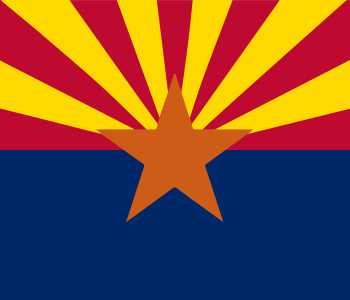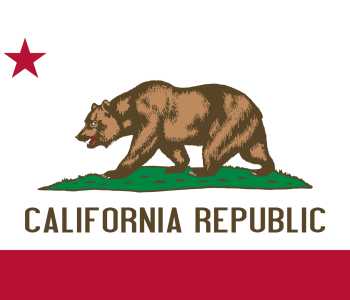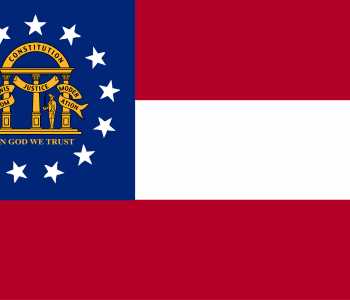Complete List of Small Business Insurance

Small business owners should understand the basics of commercial insurance so that they can protect themselves, their families and their employees.
Commercial insurance is essential for the continued functioning of the United States economy. It protects business owners and the economic system from the inherent risks faced by enterprises.
In America, more than 7 million small businesses rely on commercial insurance to ensure continued operation should the worst occur. You can protect your enterprise by understanding the basics of business insurance, risk management and loss control.
In Business, Things Go Wrong
Your business could incur a loss due to circumstances that are entirely out of your control. If for instance, your operation relies on the raw goods of another company that fails to deliver needed supplies for any reason, this could affect your business.
You may need to find another supplier for the same materials at a higher cost. Alternatively, you may have to cease business altogether if you cannot find a replacement supplier.
You can limit your exposure to supply chain disruption. In this scenario, you should always have access to multiple suppliers. Also, you should secure contingent business interruption (CBI) insurance and supply chain insurance to limit your exposure. These specialty products can help you recoup lost profits, even if there's no direct harm to your business.
Regardless of your specific needs, the point is to think about what it takes to protect your business. Many businesses spend several years trying to recover from failures such as supply chain disruptions. With the right insurance policy, your company can avoid struggling several years to recover from a significant setback. All businesses - large and small - need insurance to ensure continuity of operation.
What Is Business Insurance?
Commercial insurance protects your assets from the risks that you assume as a business owner. There's no way to profit in a vacuum. In some way, you must work with others to exchange goods or services for payment.
During these exchanges, any number of things can go wrong, including property damage, bodily harm, financial loss or a range of other undesirable outcomes. A third party that experiences one or more of these losses while engaging in a transaction with your business is likely to seek remuneration to make themselves whole from any damages.
If your business is found at fault by a court of law, you'll have to recoup those damages in the form of payment. In most cases, paying for those damages can severely set back most entrepreneurs - if not put them out of business entirely.
Insurance would protect you from that risk if the incident occurred during regular business activities. Several types of insurance protect businesses from the fallout of incidents ranging from property loss and damage, adverse legal judgments, employee-related incidents and other undesirable events. The amount and type of insurance needed by a particular enterprise vary based on factors such as company assets, the industry and the area of operation.
Different Types of Business Insurance
The following are a few of the major types of insurances available for commercial enterprises.
Professional Liability Insurance
In the event of a judgment against your company, professional liability insurance covers the costs for your legal defense and claim payment. There are, however, limits to how much protection professional liability insurance provides.
Policies typically only cover a preestablished amount of financial losses. Most will not protect you from non-financial loss, and none will protect your company from losses incurred due to deliberate or illegal activity.
Some policies may protect your business from paying extraneous fees that arise due to a judgment against your company, such as licensing board penalties. Insurers typically charge a $1,000 to $25,000 deductible for professional liability insurance.
If a client can file a case against the company for reasons like:
- Oversight
- Not fulfilling professional obligations
- Missing deadlines
Depending on the industry, this insurance policy can go by another name:
- Errors and Omissions
- Malpractice Insurance
- Professional Indemnity
To decide if this insurance policy is right for your business, consider the following:
- The company provides clients with professional advice, services, or consultations.
- Services or products can impact the clients' financial health or wellbeing.
- Missing client deadlines can do significant harm to their business.
- Offers professional services a client's business relies on to be successful.
- The company is in a high-risk industry like medicine, construction, or the law.
Talk to an insurance expert. They can help determine if professional liability coverage meets your business needs.
Property Insurance
At any time, your business property is at risk from unforeseen events such as electrical surges, fire and even computer viruses. Insurers are experts in assessing these kinds of risks. They can provide you with property insurance based on the type of enterprise that you operate.
Property insurance enables small businesses to continue operation with minimal disruption in the event of a loss. However, you shouldn't rely solely on an insurance policy to recover from damages. Property insurance is only a part of risk reduction and control.
As part of operating your business, you should take measures to minimize or prevent adverse events. Business owners who take these measures have fewer insurance claims and find it easier and less costly to secure coverage.
To decide if this insurance policy is right for your business, consider the following:
- You rent or own a physical business location.
- The company relies on physical business equipment, supplies, or inventory.
- You use laptops or a full-scale manufacturing facility for business purposes.
The policy does not cover damages resulting from earthquakes and floods.
Home-Based Business Insurance
Many home business operators mistakenly believe that their homeowner's insurance will cover business losses. On average, homeowner's insurance may cover $2,500 for business equipment if the damage occurred on-site or up to $250 if it occurred off-site. Many homeowner's policies, however, exclude business-related losses completely.
An in-home business insurance policy provides specific coverage that's similar to the that provided for large commercial enterprises. A commercial insurance policy may cost $10,000 a year, while insurers typically charge closer to $300 a year for an in-home business policy.
Product Liability Insurance
Product liability insurance is mainly for manufacturers, distributors and retailers. This kind of policy protects enterprises from legal liability that results from defective products that cause personal injury.
For example, product recall insurance - a specialty product liability offering - covers the losses associated with product recalls.
Product liability claims can cost companies severely. Insurance companies settle most product liability claims out of court. On average, product liability claims awarded to plaintiffs by jury decision range from $70,000 to $75,000 per award.
To decide if this insurance policy is right for your business, consider the following:
- The company sells physical products.
- Consumers may use the product wrong
- Manufacturing issues are possible.
Your product could be or can become dangerous to consumers.
Commercial Vehicle Insurance
In most states, businesses must purchase vehicle liability insurance coverage for bodily injury or property damage that results while you or an employee is driving a vehicle while conducting business. Many states also require coverage for underinsured or underinsured motorists as well as for medical expenses due to automobile accidents. Business owners can also purchase insurance for damage to vehicles that the company owns, leases or hires.
Insurers typically use the Business Auto Coverage Form (BACF) to provide commercial vehicle liability insurance. The policy covers cars, trucks, trailers, vans and other vehicles used for transport. Companies with five or more vehicles typically opt for fleet insurance.
To decide if this insurance policy is right for your business, consider the following:
- The company owns any vehicles.
- You or employees use personal automobiles for work purposes.
- The business rents, leases, owns, or hires heavy commercial vehicles. (i.e., semi-trucks, etc.).
Policies vary in the range of coverage. Talk with an insurance agent to find the right coverage for your vehicle and business needs.
Business Interruption Insurance
A disaster can strike at any moment. Most business owners will not take the chance of opening their doors without buying insurance to protect themselves in the event of a fire or natural disaster. However, a large number of small business owners fail to consider what they'd do if their business site is temporarily unusable.
If a disaster occurs, customers will eventually look for another business to fulfill their needs. It's essential for companies to recover from setbacks quickly so that they do not lose customers.
Business interruption insurance compensates owners for losses incurred when they must vacate their premises to recover after a disaster. The event must fall within the guidelines of the property insurance policy.
Insurers do not sell business interruption insurance as a standalone product. It's typically a part of commercial property insurance. Instead, insurers include it as part of a package.
To decide if this insurance policy is right for your business, consider the following:
- The company cannot afford to experience a loss in revenue.
- Owners are unable to pay for temporary relocation or closure.
- Payments to your employees are impossible if the business must shut down for a short time
Business Owner's Policy
Insurers offer a Business Owners Policy (BOP) especially for small business owners. A BOP is a combination of commercial property and general liability insurance rolled into a single policy.
Some BOPs also include business interruption coverage. Because BOPs are a bundled offering, insurers charge a lower rate compared to what it will cost to pay for the policies individually. Depending on the coverage amount in terms, BOPs can cost from roughly $350 to $3,000 per year.
Workers' Compensation Insurance
If an employee suffers work-related injuries and must pay medical bills, workers' compensation insurance covers those expenses if your company is responsible for making that person whole. Some workers' compensation policies will cover your legal defense if an employee claims that their injuries were due to negligence.
Except for Texas, every state requires businesses with employees to purchase workers' compensation insurance. In some states, this law applies to companies with as little as one worker.
Insurers charge greatly varying rates for workers' compensation insurance. The cost depends on the number of employees and the risks associated with their work. Workers' Compensation insurance policies for small business owners typically start at $500 but can cost up to thousands of dollars per year.
To decide if this insurance policy is right for your business, consider the following:
- The company has employees.
- Employees are not the owners of the company.
- The company has more employees than the state's workers compensation requirements.
- You have not checked whether the state requires this policy by law.
- The business is in a high-risk industry like construction, manufacturing, or manual labor.
Business Insurance Policy Evaluation
Most often, purchasing business insurance isn't a straightforward process. The kinds of coverage you'll need depends on your field or industry.
Most business owners must consult with an agent or broker to evaluate the insurance needs of their enterprise. Once the agent or broker estimates the risks specific to a business, they can offer a quote which is followed by a full underwriter risk assessment.
An underwriter will typically visit a commercial location to assess whether the site meets commercial building codes, fire safety standards and accessibility requirements. They will also determine the age and construction of the building.
The underwriter will also examine your payroll, credit history and past business losses. Then, they will evaluate their findings to determine the amount of your premium.
Over time, your business will grow. For instance, you may hire employees, purchase equipment increase revenue or expand to other locations. As these growth events unfurl, your exposure to risks will rise.
The more that you accomplish, the more that you have to lose. You should assess your liabilities regularly. Insurance that was adequate in the previous year may not cover the value of your current assets.
Finding the Right Policy
Most small businesses can survive minor setbacks. However, a significant lawsuit, an extended business closure or an adverse judgment can force an enterprise to shutter its doors. Even a frivolous lawsuit can result in hefty legal fees that can eat up the money needed to operate a business.
Insurance is all about minimizing those risks. Its sole purpose is to protect your assets. Before you purchase coverage, however, it helps to understand what you're trying to protect. Accordingly, the first step in figuring out how much insurance you need is to establish how much you have to lose. You can start the process by determining the financial health of your business.
As a rule of thumb, try to think about all the expenses that your business cannot afford to pay out-of-pocket in the case of an unforeseen event. For the unexpected events that your company can absorb, establish a cash reserve to cover those expenses. For events that your company cannot afford to pay for out-of-pocket, purchase insurance.
Many business owners decide which policy to buy based on price. However, this is not an effective way to choose a policy. There's no real way to shop for policies based on how much they cost. A policy from one insurer typically doesn't cost more than one from another insurer.
Insurers use an actuarial method to determine rates. They painstakingly calculate premiums based on risk. If an insurer offers a low premium, it's because it's unlikely that your business is at risk. If they offer a high premium, it's because there's a high likelihood that something could go wrong.
Preparing to Apply for Business Insurance
To procure an accurate quote, you'll need essential information, such as payroll and bookkeeping records. You can start the process with an estimate, but you'll need detailed and accurate information for the underwriting process to avoid excessive premiums.
To apply for insurance, you'll need to gather all the documentation that may affect your premium. If you rent a property for your business, for instance, you'll need to present the lease agreement so that the underwriter can review the document. Your business lease will detail your liability as a tenant.
You'll also need documentation proving the value of any assets and inventory owned by your business. With this information, the underwriter can determine how much it will cost to replace those assets if something goes wrong.
The underwriter will also need to review your revenue. The more that your company makes, the more you are exposed to liability. This information, for example, will help insurers determine how much to pay out in the event of a business interruption. The underwriter will also need to know how much you pay your employees as well as their roles.
The actuarial process is highly detailed and complex. When business owners are shopping for insurance, they typically want to know everything that goes into underwriting their policy, and that's fine. You should ask as many questions as you need to understand the process.
Choosing an Insurer
Before settling on an insurer for your business, check with your state insurance board to make sure their license is current. Also, take a close look at your potential insurer's exclusion policies.
When comparing providers, take note of the exclusions. Also, some insurers may provide an attorney for litigation, while others may reimburse you after you pay attorney's fees. In addition, insurers offer varying levels of service. Assess the level of service that you'll receive with your policy.
Finally, think about what you can do to reduce the cost of your insurance. For example, you could pay a higher deductible, establish a risk management policy or initiate a loss prevention program to lower your premium. Ask brokers and carriers if they offer discounts under these and other conditions.
Leading Business Insurers
The following are several leading commercial insurers in the United States.
1. The Hartford
The Hartford typically covers sole proprietors or businesses with employees who work across a range of industries. The company tries to offer value to every business owner. Their claims process minimizes business disruption.
2. CoverWallet
Many business owners that need a certificate of insurance (COI) turn to CoverWallet. Business owners can quickly apply for coverage using their online application.
3. Hiscox
Hiscox is a growing small business and home business insurer. Entrepreneurs and independent contractors increasingly favor the provider. The company provides policies for a range of industries and offers a diverse selection of products.
4. Insurance321
Insurance321 is an online insurance broker - sans broker fees. Business owners can fill out an insurance application directly on the site. The company's technology uses actuarial standards to aggregate a policy.
5. AP Intego
As a broker that works with leading national insurance carriers, AP Intego finds policies for businesses. They specialize in serving the types of good and service providers you'd find in local shopping districts.
6. Travelers Group
Travelers Group is one of the largest commercial insurance providers in the world. They also work with small business development centers (SBDCs) to help business owners learn how to assess risks and buy the right kind of insurance.
7. AmTrust
AmTrust positions itself as a friend of small businesses. The carrier covers all kinds of risks. They also offer extended warranty coverage for small business equipment.
8. AIG
AIG is a global insurer that covers small and large businesses. They are well-positioned to protect your business as it grows in value. The company offers policies for all risks and can provide coverage for business activities anywhere in the world.
9. Nationwide
Nationwide is one of America's largest personal and commercial insurers. They specialize in covering home-based businesses and entrepreneurs who use their own vehicles for business.
A Few Things to Think About When Buying Business Insurance
An entrepreneur won't think twice about establishing a legal structure to protect their business interests. However, insurance is one of those things that people tend to put off unless it's something required to work in their field or industry.
Most people don't think about insurance - until they need it. Business owners are no exception. They typically have so many responsibilities to manage that insurance is typically low on a long list of priorities.
It helps, however, to think about what's really at risk. You, your family and your employees depend on your business for their livelihood. Insurance protects the future of your family and employees from unforeseen misfortune.
For some small business owners, insurance may seem like an unnecessary and exorbitant expense. However, you can find a policy with a company that specializes in working with small businesses. Typically, an insurer who services small businesses can offer a general liability policy for as little as $300 a year.
Yes. It may smart a little to look at your yearly expenses and see a $300 insurance charge when you didn't have to use it. However, if something goes wrong, that inexpensive insurance policy may turn out to make all the difference in the world.







